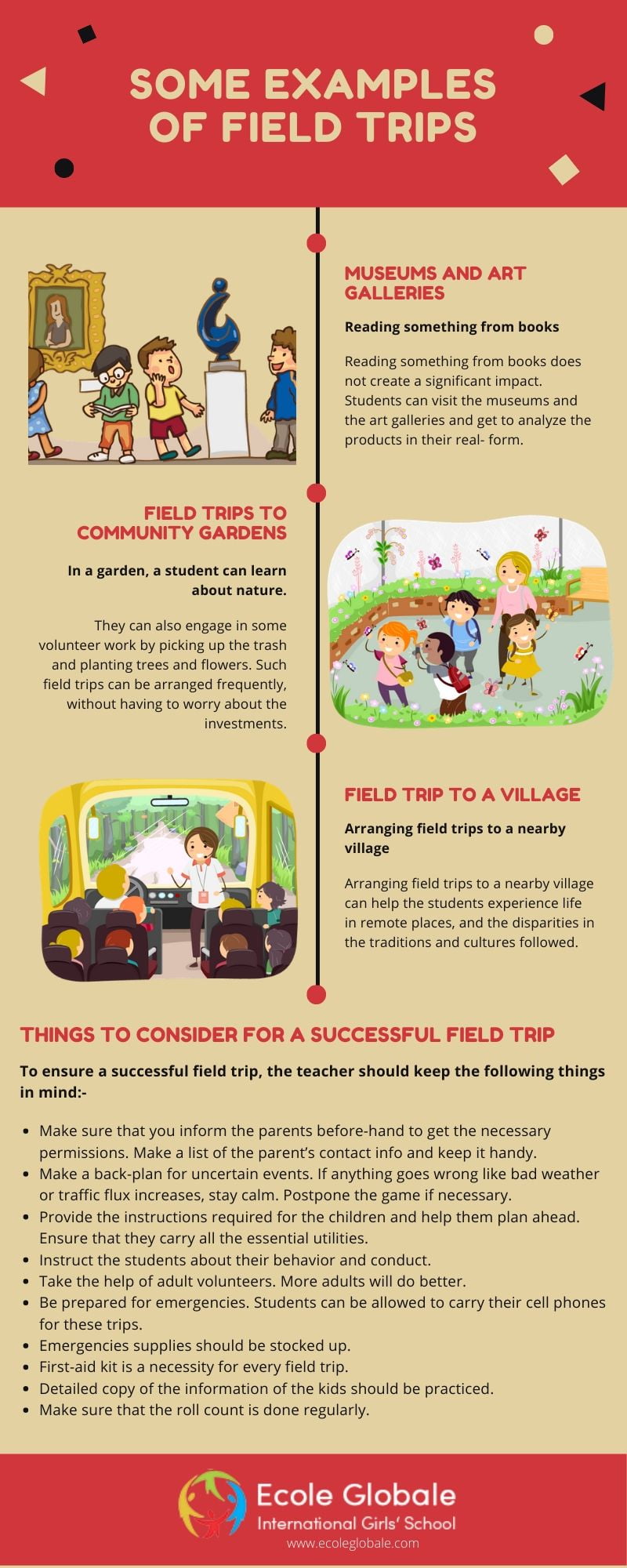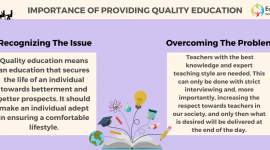Education and learning processes should not only be limited to the classroom environment. The real-world connection and hands-on experience are proven methods of better learning. Boarding schools usually organize frequent field trips and educational tours for the students. In this, a student learning many things pertaining to a particular location like their traditions, practices, languages, etc.
Theoretical knowledge in the books is not always enough to furnish the essential information to the students. The retention of a concept is better when the student experiences it practically. Field trips act as a significant help in this area. A student might read about flora and fauna of a region, or the cultures and traditions prevalent there. But, to know the things in a much better manner, you have to experience the place yourself.
Students are usually excited about the field trips. They take it as a mind- refreshing and rejuvenating venture. It is an opportunity to come out of the classroom confinements and enjoy the embrace of the natural surroundings, in the company of classmates and peers. A learning lesson generally accompanies a field trip. Teachers also get to analyze and observe the students in real-life scenarios.
BENEFITS OF FIELD TRIPS
Field trips have several advantages connected to it. It is not just a fun picnic. It is stress- reliever and mood uplifter. Here are a few benefits attached to the field trips in schools:-
- Field trips are a fun-filled activity that alleviated the tension of the child.
- Field trips act as a tremendous refreshing activity that breaks the monotony of the classroom.
- Students get various opportunities to apply their theoretical knowledge in different places.
- Students can form bonds with other classmates.
- Communication and interaction skills of the students get enhanced in the process.
- In a new environment, students get further opportunities to discover their potential and explore new things.
- Students get to explore the local area and gain information about their traditions and religion.
From a teacher’s point of view, the field trip is a very beneficial activity. Teachers get new resources, and they can get creative with the learning process. Teachers can also include their personal experiences and help the students understand their surroundings and nature in a better manner.
SOME EXAMPLES OF FIELD TRIPS
1) MUSEUMS AND ART GALLERIES
Reading something from books does not create a significant impact. Students can visit the museums and the art galleries and get to analyze the products in their real- form. When the concept is physically presented to a person, their understanding automatically proliferates. Hence, arrange frequent field trips to the museums and art- galleries. Students will also learn more facts about the things through the museum guides and authorities.
2) FIELD TRIPS TO COMMUNITY GARDENS
In a garden, a student can learn about nature. They can also engage in some volunteer work by picking up the trash and planting trees and flowers. Such field trips can be arranged frequently, without having to worry about the investments.
3) FIELD TRIP TO A VILLAGE
Arranging field trips to a nearby village can help the students experience life in remote places, and the disparities in the traditions and cultures followed. This will increase their perspective of the world. They will learn as to how people in different environments tackle situations with the help of their available resources and knowledge. Students learn about diversity and adaptability in the lives of the people.
THINGS TO CONSIDER FOR A SUCCESSFUL FIELD TRIP
To ensure a successful field trip, the teacher should keep the following things in mind:-
- Make sure that you inform the parents before-hand to get the necessary permissions. Make a list of the parent’s contact info and keep it handy.
- Make a back-plan for uncertain events. If anything goes wrong like bad weather or traffic flux increases, stay calm. Postpone the game if necessary.
- Provide the instructions required for the children and help them plan ahead. Ensure that they carry all the essential utilities.
- Instruct the students about their behavior and conduct.
- Take the help of adult volunteers. More adults will do better.
- Be prepared for emergencies. Students can be allowed to carry their cell phones for these trips.
- Emergencies supplies should be stocked up.
- First-aid kit is a necessity for every field trip.
- Detailed copy of the information of the kids should be practiced.
- Make sure that the roll count is done regularly.










Like!! Really appreciate you sharing this blog post.Really thank you! Keep writing.
thanks